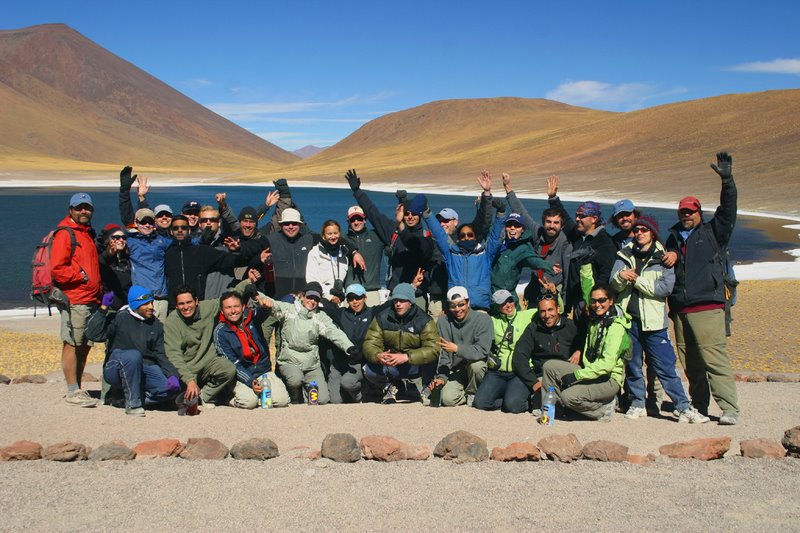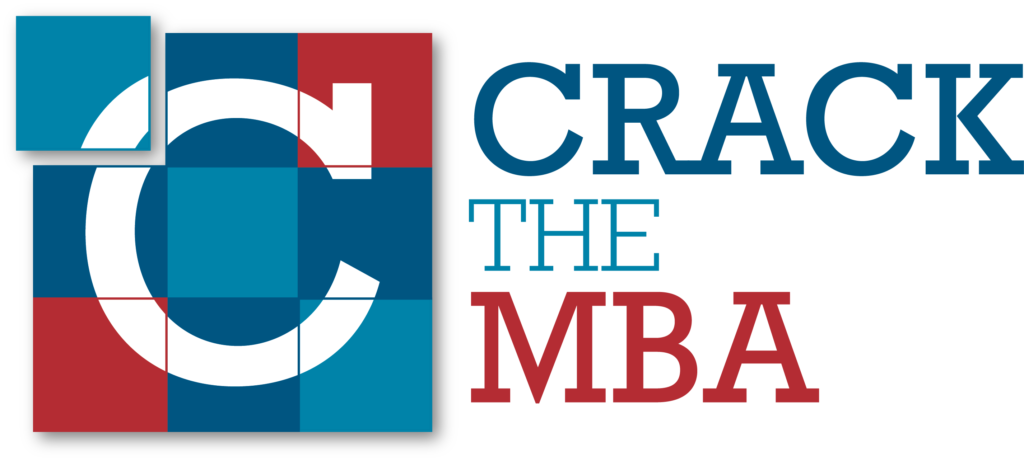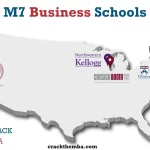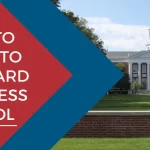Business Schools Are Leading The Way In Developing The Next Generation of Leaders

Leadership is a coveted soft skill be it for employers or leading MBA programs, looking to fill their classes with the best and the brightest candidates, expected to lead the value-creating enterprises in the new world. The leaders of today possess a number of traits, including emotional intelligence, self-awareness, ability to influence and communicate, humility and more. However, all these traits aren’t enough in the current work environment as leaders are increasingly expected to go beyond the regular and be authentic and vulnerable. The leaders of today are expected to be able to talk about their weaknesses. Where earlier leadership was about perfection, the world increasingly celebrates leaders who are willing to embrace their imperfections.
Leadership at Business Schools
So, how are business schools approaching the need to develop leadership skills in their prospective MBA candidates? Let’s take a look.
Leadership as a quality is not always something that one is born with or inherits, but is something that one can work on and hone, and here’s where business schools play an important role in shaping the leaders of tomorrow. Business schools offer an environment where aspiring leaders can test their leadership in diverse teams in a low-risk environment. As the need for leaders across different spectrums of life continues to evolve, a number of business schools offer leadership programs in varying capacities to develop the next generation of global leaders.
Business school are the ideal training ground for aspiring leaders with a plethora of formal and informal opportunities for leadership development including experiential programs, student-led opportunities such as leading clubs, conferences, career treks and more. Here’s a look at some formal offerings at a few leading MBA programs for candidates looking to strengthen their leadership skills.
Here’s a look at some offerings at some leading MBA programs for candidates looking to strengthen their leadership skills.
Stanford GSB
Stanford GSB’s Initiative for Leadership Education and Development – or I-LEAD is designed specifically to hone leadership skills in MBA students. With an intense focus on personal experiential testing, analysis, and reflection which includes taking formal classes (both required and optional) as well as continuous coaching opportunities. I-LEAD also hosts the “Executive Challenge” (a program where first year MBA students participate in experiential leadership challenges which are judged by faculty and alumni), the Leadership Lab (a required course for first year MBA students where they practice core leadership skills in a team setting), and the Arbuckle Leadership Fellows Program (a highly selective program for second year MBA students to mentor and coach first year MBA students).
Chicago Booth
Chicago Booth was one of the first business schools to design an experiential leadership program, and currently offers Leadership Development through its Leadership Effectiveness And Development (LEAD) program. The program is continuously updated to adapt to the evolving challenges of leadership and is designed to enhance students’ self-awareness and interpersonal effectiveness and allows them to work within an environment critical to leadership – working in teams, influencing others, conflict management, interpersonal communication, presentation skills, etc.
Chicago Booth also provides leadership courses that go beyond LEAD, with courses ranging from a Leadership Practicum that focuses on building traditional skill sets, such as “developing credibility, coaching others, and communicating a shared vision, to the innovative Leadership Studio, which will take students into a “rehearsal hall and fieldwork to help them recognize, harness, and deploy their own leadership qualities”.
Harvard Business School
Harvard Business School’s MBA program sees first year students take two courses that focus deeply on building leadership and interpersonal skills, while the elective curriculum allows students to take advantage of a number of leadership, interpersonal development, and talent management electives to choose from to continue building their skills. One of the electives include Authentic Leadership Development, which allows students on helping them understand what their personal leadership style will be.
Wharton
Wharton’s McNulty’s Leadership Program is aimed towards developing global leaders and how they can make a positive difference for investors, customers, employees and communities regardless of national setting, but with a “deep appreciation for the distinctive cultures at play”.
Started in 1992 as the Wharton Leadership Program or WLP, the newly-named Anne and John McNulty Leadership Program at the Wharton School brings together scholarship, relationships, and experiences that links knowledge to action and provides further opportunities for learning and growth.
Wharton’s MBA program also plays host to Wharton Leadership Ventures, a set of experiences that facilitate self-discovery, leadership, and character development. It gives participants an opportunity to step out of their comfort zones, exceed their own personal limitations and experience leadership firsthand. The Leadership Ventures are spread between two immersive experiences: Expeditions and Intensive.
Expeditions are outdoor, experiential treks, ranging from 6 -10 overnight trips, that provide a genuine sense of uncertainty and challenges. The 2019-2020 Expeditions feature Antarctica Trekking, Andes Mountaineering, Utah Canyoneering among many other treks.
Intensives are consolidated and immersive group based experiences ranging from 1-2 days. The 2019-2020 Intensives feature the FDNY Intensive, a one day event developed to mirror New York City Fire Department’s team practices, and the Quantico Military Simulation, a two-day program that provides an intense, hands-on learning program that emphasizes fast decision-making, team-based problem solving, and effective strategic thinking.
Tuck School of Business
Tuck School of Business is home to the Tuck Center for Leadership, which places great focus on leadership through students (who design and offer leadership development activities), teachers (who support and advance cutting-edge research on leadership), and corporate (who facilitate the exchange of best practices and research findings in leadership development). Among Tuck’s faculty is Sydney Finkelstein, a renowned academician and author, whose work on leadership and strategy focuses on the strengths and weaknesses of the executive talent. Finkelstein will be leading the Tuck Center for Leadership and hopes to expand and innovate upon the fundamental foundations of supporting and creating leadership-building curricula, activities and research at Tuck.
INSEAD
INSEAD offers Leadership Communication Foundations as a core course in its full time MBA program, and focuses on aspects such as the relationship between effective leadership and effective communication. The course framework is built upon communication intelligence for leaders to connect people, ideas and actions in the business environment. Going beyond academia, the course also allows students to build their own personal ‘tool-kit’ of techniques for effective communication relevant to their future business and leadership development.
Beyond the MBA program, INSEAD also offers 19 different leadership programs through their Open Programmes, which range from anywhere between 3 to 20 days.
Authentic Leadership at Business Schools
As the need for leaders who go beyond the ordinary continues, business schools have also been turning towards adding Authentic Leadership programs to add a whole new dimension to their academic offerings, as well as student clubs that encourage members to talk about their personal journeys which can inspire others.
What is Authentic Leadership?
Amongst the earliest proponents of authentic leadership in the MBA world, Bill George, described an authentic leader as “someone who is genuine and true to what they believe in. They understand the purpose of leadership, they lead with very consistent values, and with their heart, as well as their head. They have courage, compassion, empathy– qualities like that– and they build long-term connected relationships. And they have the personal self discipline to deliver extraordinary results from their teams.” In fact, in 2003, he authored a book called ‘True North: Discover Your Authentic Leadership’ that explores this topic in some detail.
George’s work formed the basis for HBS’s executive programs in authentic leadership development for the past several years. The next executive program, called Authentic Leader Development Program, for senior leaders will be held from the 7th-12th June, 2020. The focus of the program is on enabling participants to find their own path to authentic leadership, learning to adjust to new conditions and empowering other people and expanding their professional network.
Outside of such executive programs, authentic leadership has had roots in the full-time MBA programs as well. Stanford GSB’s Interpersonal Dynamics elective (better known as “Touchy Feely”), which has been around for 45 years, is often touted as a transformative course by MBA graduates, remembered long after they graduate.
Further, authentic leadership has been gaining traction in student-led initiatives at several business schools. At Columbia Business School (CBS), students organize events called CBS Matters, where students and other members of CBS present to their peers and classmates what matters most to them and why. These events tend to include poignant and moving details of speakers’ lives, which enable members of the community to see them in a new light altogether.
Two Wharton graduates, Anita Hossain and Stephanie Lai, started Wharton Storytellers, a student club in 2014, with the mission of encouraging the Wharton community to more “actively listen, share, and learn from one another”. Storytellers hosts Story Slams, a platform for students to share tales that fall within a particular theme in an intimate setting, while also promoting a “no small talk” policy. In 2018, Storytellers became Wharton’s largest student club on campus with 1250 members. The current co-presidents, Anisha Morchela and Bruno Byrro, have plans on hosting even more Story Slams in the future as well as diversifying the formats to include written, musical and visual storytelling.
Tuck School of Business hosts TuckTalks, which in 2014 debuted a new forum for members to share some of their most fascinating life stories in a bid to inspire others around them. TuckTalks also sees participation from staff, faculty, visiting executives, and notable alumni. One memorable talk to come out of this has been from Ema Reid, a graduate from Tuck School of Business (Class of ‘17), where she talks about her family’s experience as refugees from the war in Bosnia-Herzegovina in 1992, and how they discovered they would never be able to return to Sarajevo while on a plane to the United States.
Tuck is also home to the Tuck Centre for Leadership, which places great focus on leadership through students (who design and offer leadership development activities), teachers (who support and advance cutting-edge research on leadership), and corporate (who facilitate the exchange of best practices and research findings in leadership development).
Leadership isn’t defined by a particular set of parameters anymore. Its dynamical nature proves that in order to be an effective leader, one needs to adapt to newer concepts while being empathetic and staying true to themselves.



